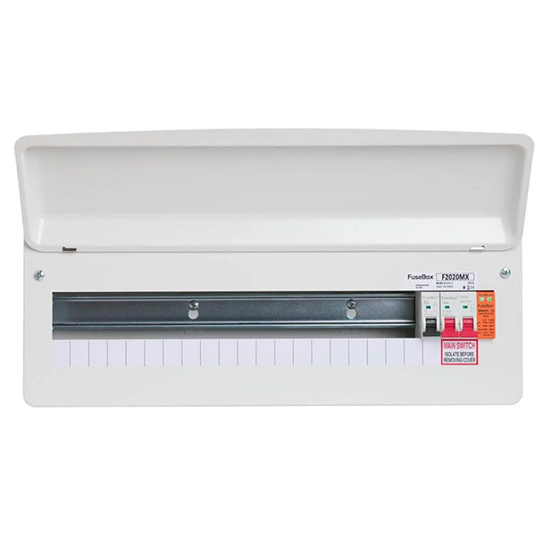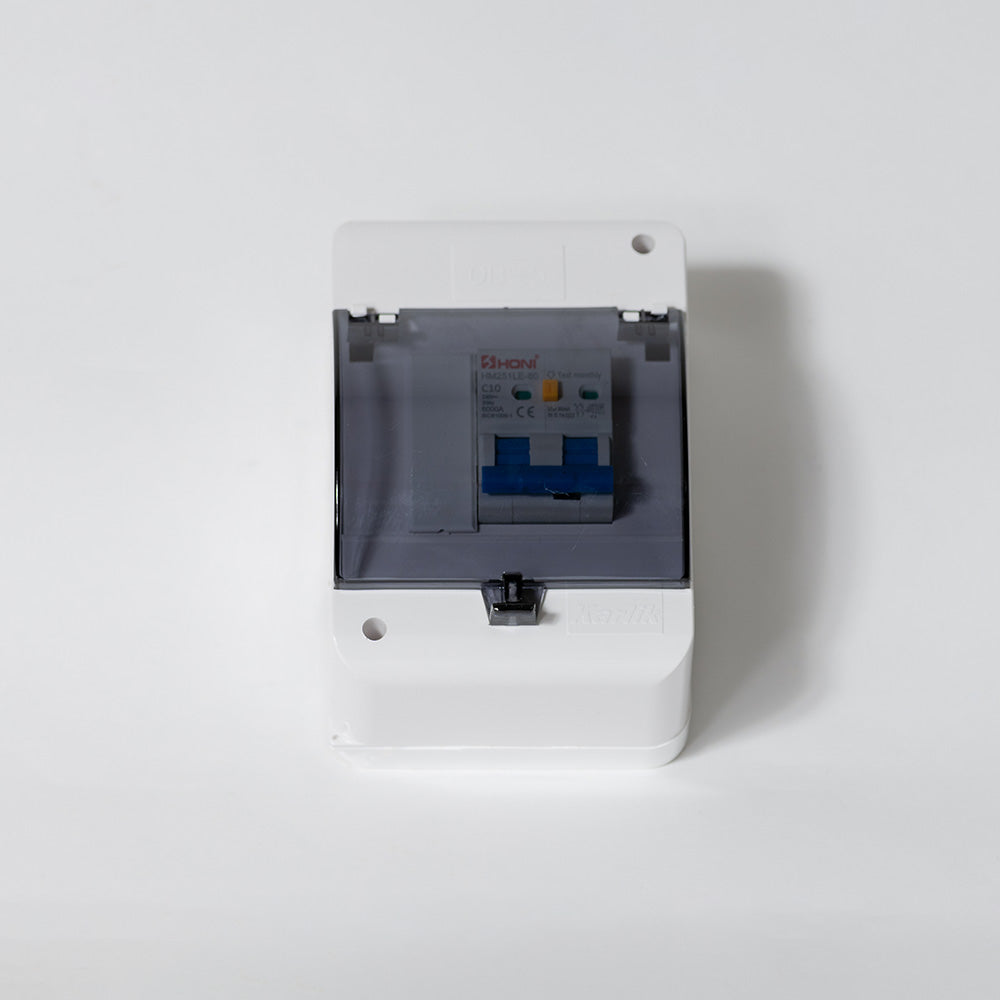How RCBO CONSUMER UNITS Improve Electrical Safety in Residential Spaces
How RCBO CONSUMER UNITS Improve Electrical Safety in Residential Spaces
Blog Article
The Duty of Customer Devices in Efficient Power Management Equipment
Customer devices are essential to efficient power monitoring systems, functioning as the main circulation factors for electrical power within structures. By integrating circuit breakers, they guard circuits from possible overloads, thus maintaining security and protecting against extensive failures. The development of clever modern technologies has even more improved their capability, enabling for real-time information surveillance and nuanced energy usage evaluation. This integration not just enhances power use but also facilitates the consolidation of renewable resource resources, therefore promoting sustainable techniques. How, after that, do these advancements convert to substantial advantages in everyday energy monitoring?
Understanding Consumer Systems

Comprehending the role of consumer systems begins with recognizing their essential function in securing electrical systems. By separating mistakes within particular circuits, consumer devices prevent widespread blackouts and prospective fire risks. This isolation is attained through using breaker that trip or integrates that strike when a fault is detected, therefore cutting off the electrical circulation to the impacted circuit.
Moreover, consumer devices help with the organized distribution of power, improving the efficiency of energy use. They permit the systematic management of electric tons, which can be specifically important in commercial and industrial settings where need can fluctuate substantially. Properly conserved customer systems contribute to the long life of electrical systems and assist in reducing downtime brought on by electric failures, eventually sustaining the seamless operation of energy-dependent facilities.
Smart Technologies Combination

An essential benefit of smart consumer devices is their capability to take advantage of advanced algorithms and artificial intelligence for predictive analytics. This enables for preemptive modifications based on usage patterns, weather prediction, and various other variables, considerably enhancing general efficiency. Wise customer devices help with demand feedback programs, where power use can be dynamically readjusted during top durations to maintain the grid and reduce expenses.
The assimilation of eco-friendly power resources, such as solar and wind, is also streamlined through wise consumer systems. By wisely taking care of the intermittency of these resources, these devices ensure a balanced and trusted power supply. In addition, clever customer devices enhance user engagement by providing detailed insights and remote control capabilities with mobile applications, promoting a more proactive approach to energy preservation and sustainability.
Monitoring Power Usage
Building on the capabilities of smart innovations combination, checking power intake ends up being an important focus within energy administration systems. Efficient monitoring functions as the foundation for determining energy inadequacies and carrying out rehabilitative actions. By leveraging innovative metering facilities (AMI), real-time data on energy use can be accumulated at granular levels, giving beneficial understandings into consumption patterns and peak need durations. This data-centric strategy allows both consumers and energy supervisors to make educated decisions intended at decreasing waste and boosting general efficiency.
Smart meters and Internet of Points (IoT) tools play a crucial role in this surveillance process. These devices can track energy use in real-time, sending data to centralized systems for analysis. The gathered information is then refined with innovative algorithms to detect anomalies, anticipate future usage, and suggest optimization methods. look here Additionally, cloud-based remedies offer scalable platforms for keeping and analyzing big datasets, facilitating remote tracking and control.
The integration of these innovations not only empowers consumers with comprehensive information concerning their energy use however additionally supports utility providers in managing tons circulation better. Inevitably, continual and exact tracking is essential for achieving energy efficiency, expense financial savings, and sustainability objectives within energy administration systems.
Optimizing Appliance Use

One reliable technique involves identifying height and off-peak hours to change energy-intensive tasks, such as washing or dishwashing, to times when power need is reduced. This not only lessens strain on the grid but additionally exploits on lower power tariffs. Additionally, incorporating equipment discovering formulas permits predictive maintenance, making sure devices operate at ideal effectiveness and extending their life expectancy.
Energy management systems can also integrate user-specific preferences and habits to customize home appliance use routines. As an example, clever lights systems can change illumination based on tenancy and all-natural light availability, while HVAC systems can preserve convenience levels without too much power use.
Supporting Sustainability
Promoting sustainability within power administration systems includes not just enhancing performance but likewise promoting ecologically responsible techniques. Customer devices are important to this process, as they provide real-time information and control devices that make it possible for users to monitor and decrease their energy consumption. By leveraging advanced modern technologies, consumer units can recognize energy-saving possibilities and assist in the assimilation of renewable resource sources like solar and wind power.
One critical element of promoting sustainability is informing customers on the benefits of responsible over at this website power usage. With detailed insights offered by customer systems, individuals can make informed decisions that minimize their carbon footprint. For example, these devices can recommend optimal times for operating high-energy appliances based upon grid demand and renewable resource availability, therefore lowering reliance on nonrenewable fuel sources.
In addition, consumer units sustain the adoption of wise grid modern technologies, which boost the total efficiency and integrity of power distribution. By making it possible for two-way interaction in between consumers and utility service providers, these systems can dynamically get used to power demands, reducing waste and promoting making use of lasting energy techniques.
Final Thought
Consumer systems, as important parts of energy monitoring systems, considerably enhance electric safety and effectiveness within structures with circuit security and wise innovation combination. Real-time information monitoring and analysis assisted in by these units enhance energy intake and device usage. Furthermore, the incorporation of renewable resource resources advertises sustainable practices, contributing to reduced total energy intake and reduced carbon impacts. Subsequently, customer devices play a vital role in progressing both power performance and ecological sustainability.
Developments in wise modern technologies have actually changed the capabilities of power monitoring systems, specifically through the combination of smart consumer devices.Building on the capabilities of clever modern technologies assimilation, monitoring energy consumption comes to be a vital emphasis within power monitoring systems.Efficient home appliance use optimization is an essential part of energy monitoring systems, intending to boost performance and reduce unnecessary power usage.Customer devices, as indispensable components of energy monitoring systems, dramatically improve electric safety and effectiveness within buildings through circuit security and clever modern technology integration. Furthermore, the unification of sustainable power resources promotes sustainable techniques, adding to reduced general energy consumption and lower carbon footprints.
Report this page